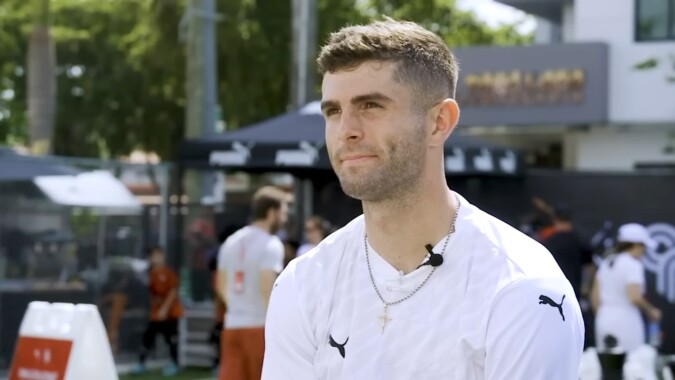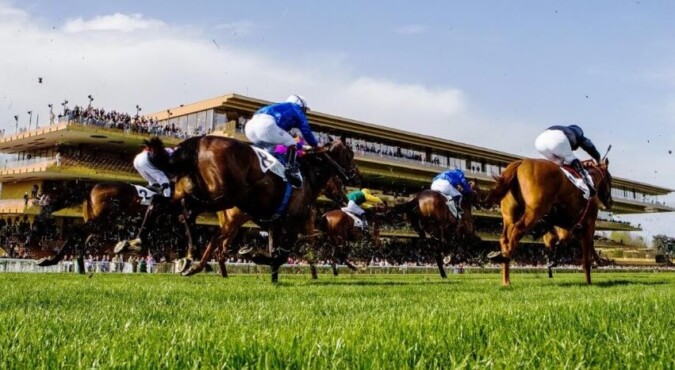The Premier League may only be three games old, but the managerial merry-go-round has already claimed its first victim. Nottingham Forest parted ways with Nuno Espirito Santo in early September, replacing him with former Celtic and Tottenham Hotspur boss Ange Postecoglou in a move that has shocked many observers.
Forest owner Evangelos Marinakis made no secret of his ambition when announcing the appointment of the Australian coach.
“We are bringing a coach to the club who has a proven and consistent record of winning trophies,” Marinakis said.
“His experience of coaching teams at the highest level, along with his desire to build something special with us at Forest, makes him a fantastic person to help us on our journey and achieve consistently all our ambitions.
“After gaining promotion to the Premier League, then building consistently season after season to secure European football, we now must take the right step to compete with the very best and challenge for trophies. Ange has the credentials and the track record to do this, and we are excited he is joining us on our ambitious journey.”
The swift dismissal of Nuno, despite a fourth-place standing and European qualification last season, underlines just how high expectations have become at the City Ground. Marinakis has shown ruthlessness before, and his willingness to act so early has placed other Premier League managers on notice. For those under pressure, September and October already look like defining periods, with the fixtures that matter most this month potentially deciding whether some stay in their jobs or follow Nuno out the door.
With that in mind, here’s a closer look at the managers who could be feeling the heat as the season begins to take shape.
Graham Potter (West Ham United)
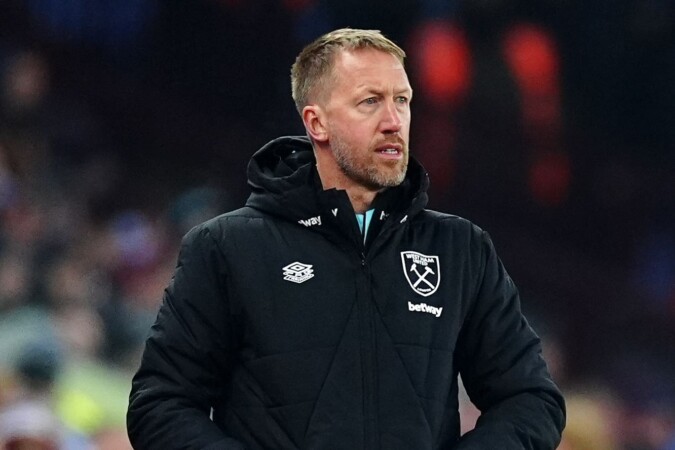
Few managers have endured a more turbulent opening than Graham Potter. The West Ham boss saw his side slump to a humiliating 3–0 defeat against newly promoted Sunderland on the opening weekend, before being dismantled 5–1 by Chelsea at Stamford Bridge.
A much-needed 3–0 victory over Forest steadied the ship, but the mood in East London remains uneasy. Supporters have been quick to voice their frustrations, and bookmakers have installed Potter as one of the early favourites in the sack race.
A crunch clash looms against Tottenham Hotspur on September 13. If West Ham were to suffer another heavy defeat at the hands of a London rival, the pressure on Potter could become unbearable. With fixtures against Arsenal and Manchester City also on the horizon before Christmas, Potter’s margin for error is already razor-thin.
Ruben Amorim (Manchester United)
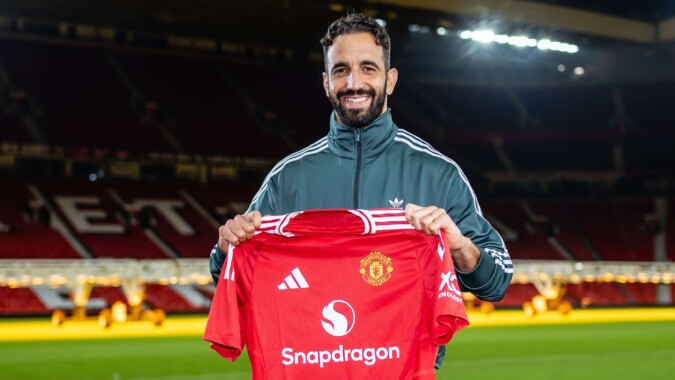
Manchester United’s gamble on Ruben Amorim has sparked debate since day one. Touted as a visionary young coach after success in Portugal, Amorim has found life at Old Trafford far more complex.
United failed to win either of their first two league games, and even a dramatic 3–2 win over Burnley — secured only by Bruno Fernandes’ 97th-minute penalty — did little to ease concerns. Fans have criticised his reluctance to give minutes to academy graduate Kobbie Mainoo, while others question whether his tactical ideas can translate effectively to the Premier League.
With a squad bolstered by significant summer spending, patience among the fanbase is thin. The United hierarchy have cycled through managers at a relentless pace over the past decade, and unless Amorim can produce consistent results quickly, he risks being added to that long list.
Daniel Farke (Leeds United)
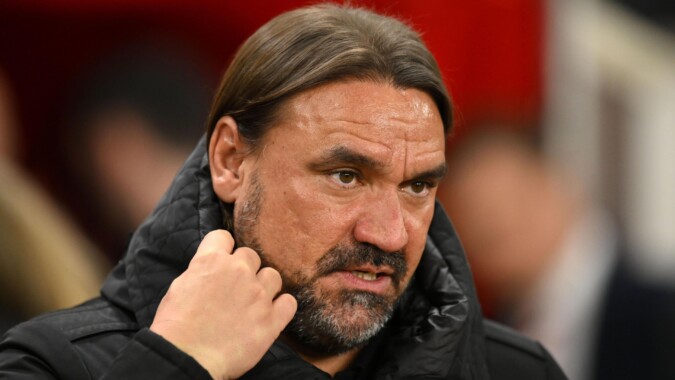
Having guided Leeds United to the Championship title last season, Daniel Farke earned his shot at redemption in the Premier League. However, his past record at the top level remains a glaring red flag. Twice relegated with Norwich City, Farke must prove he can adapt to the intensity of England’s elite.
Leeds’ start has been mixed. A solid 1–0 win over Everton was followed by a crushing 5–0 loss to Arsenal and a goalless stalemate at home to Newcastle. While not disastrous, these results have done little to convince sceptics that Farke is capable of keeping Leeds comfortably afloat.
The fixture list does him no favours either. With games against Liverpool and Manchester City before October, any repeat of his Norwich struggles could see Leeds act swiftly to avoid a relegation battle.
Keith Andrews (Brentford)

Brentford’s decision to promote set-piece coach Keith Andrews to the top job was a bold one — and one that has already divided opinion.
The Bees entered the season without key players Bryan Mbeumo, Mark Flekken, and Christian Nørgaard, with Yoane Wissa also joining Newcastle United close to the deadline. That turnover has left Andrews with a daunting challenge: keeping Brentford competitive in a league that shows little mercy.
Results have been patchy: a 3–1 defeat to Forest, a morale-boosting 1–0 win over Aston Villa, and a narrow 2–1 loss to Sunderland. The fear is that Brentford may struggle to replace the creativity and stability provided by those who departed. Unless Andrews can string together results quickly, his inexperience could become a focal point in the coming weeks.
Régis Le Bris (Sunderland)
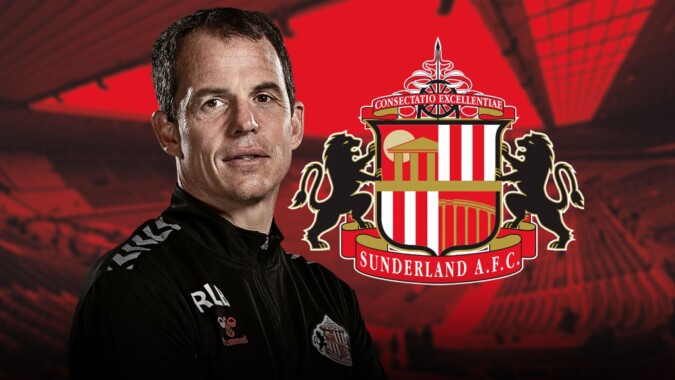
Few stories have captured the imagination like Sunderland’s return to the Premier League. Régis Le Bris, plucked from Lorient in Ligue 1, has overseen a fearless start with a youthful squad hungry to prove itself.
The opening weekend brought a sensational 3–0 dismantling of West Ham, followed by a reality check in a 2–0 loss to Burnley. Sunderland bounced back with a 2–1 win over Brentford, restoring belief around the Stadium of Light.
Still, questions remain about whether Le Bris can sustain momentum across a gruelling campaign. Promoted sides often start brightly before fading as injuries and fatigue bite. If Sunderland hit a rough patch during the winter months, Le Bris could quickly find himself under scrutiny.
Nuno’s swift sacking has shifted the managerial landscape dramatically. By turning to Ange Postecoglou, Forest have signalled that mid-table safety or gradual progress will not be enough. The Australian’s task is to build on European qualification and turn Forest into a genuine contender for silverware — an objective that will put pressure on rival clubs and their managers too.
This ruthlessness from ownership groups is nothing new, but it feels particularly intense this season. With broadcast revenues, European places, and relegation survival worth tens of millions, patience is no longer a commodity afforded to managers. Just three or four poor results can tilt the balance from job security to crisis.
For Potter, Amorim, Farke, Andrews, and Le Bris, the next few games could prove defining. The sack race has already begun — and if Forest’s example is anything to go by, there could be more casualties well before Christmas.



